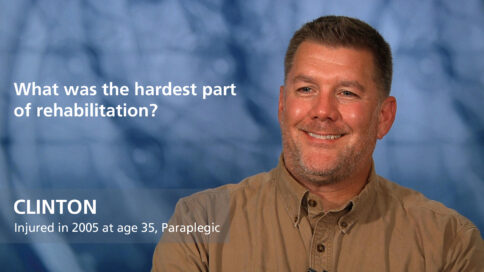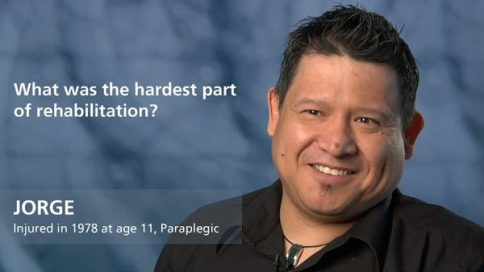How do you help patients with a spinal cord injury overcome resistance to rehabilitation? - Jonathon Rose, PhD
|
|
How do you help patients with a spinal cord injury overcome resistance to rehabilitation? |
|
Jonathon Rose, PhDPsychologist/Director Spinal Cord Injury, Outpatient Psychologist, VA Palo Alto Health Care System, CA |
||
| Read Bio | More Videos by Jonathon Rose | |
|
Share |
||
Transcript
It helps to figure out where the resistance is coming from. Some people just don’t have trust, and so we need to slow down and teach them that we’re trustworthy by example. Some people can’t accept what happened to them, they’re very angry and they feel if they collaborate that that’s kind of giving in. Those people may need a harder hand to force them to work because there’s a window of peak opportunity, and they’ll never get that again, even though they can continue to progress through their life. Some extreme cases, since we’re dealing with active-duty service people, we’ll have their commanding officer order them into rehab. But, that’s really not the best way; that’s kind of the last resort way. Usually by helping them identify small measures of progress, people will then begin to collaborate. They’re looking at the big picture, “I want to walk by Tuesday,” is not going to happen. But, can we help them see in order to get there, first they need to sit up and not have their blood pressure drop, and then they need to be able to stand a little bit in a standing frame, and to anticipate these milestones of progress.
Show Less|
|
||
add
How do you help patients with a spinal cord injury overcome resistance to rehabilitation? |
||
Jonathon Rose, PhDPsychologist/Director Spinal Cord Injury, Outpatient Psychologist, VA Palo Alto Health Care System, CA |
More Videos by Jonathon Rose | |
| Transcriptadd | share | |
It helps to figure out where the resistance is coming from. Some people just don’t have trust, and so we need to slow down and teach them that we’re trustworthy by example. Some people can’t accept what happened to them, they’re very angry and they feel if they collaborate that that’s kind of giving in. Those people may need a harder hand to force them to work because there’s a window of peak opportunity, and they’ll never get that again, even though they can continue to progress through their life. Some extreme cases, since we’re dealing with active-duty service people, we’ll have their commanding officer order them into rehab. But, that’s really not the best way; that’s kind of the last resort way. Usually by helping them identify small measures of progress, people will then begin to collaborate. They’re looking at the big picture, “I want to walk by Tuesday,” is not going to happen. But, can we help them see in order to get there, first they need to sit up and not have their blood pressure drop, and then they need to be able to stand a little bit in a standing frame, and to anticipate these milestones of progress.






































